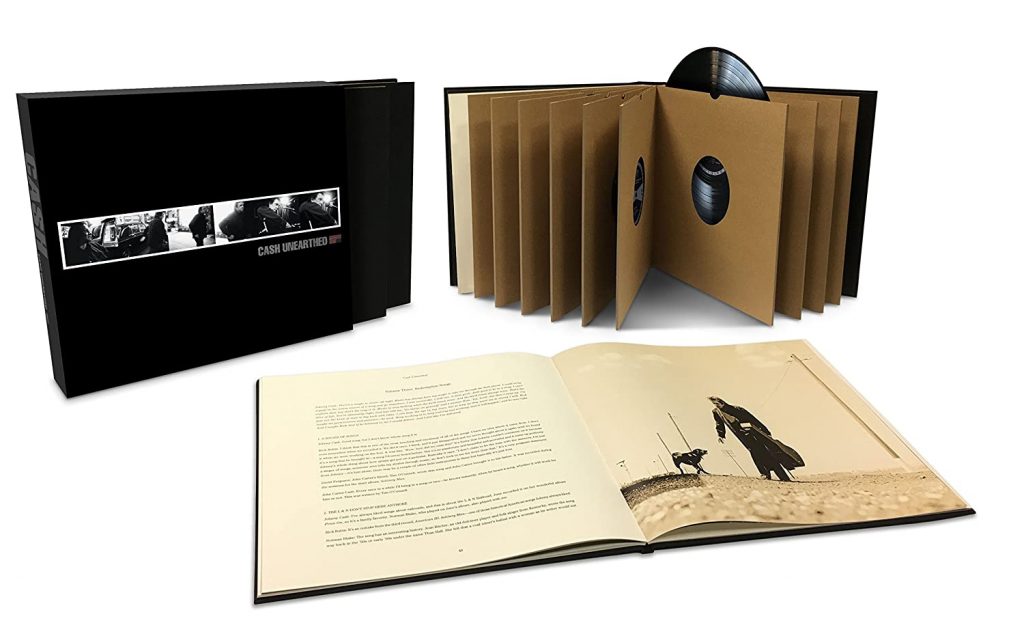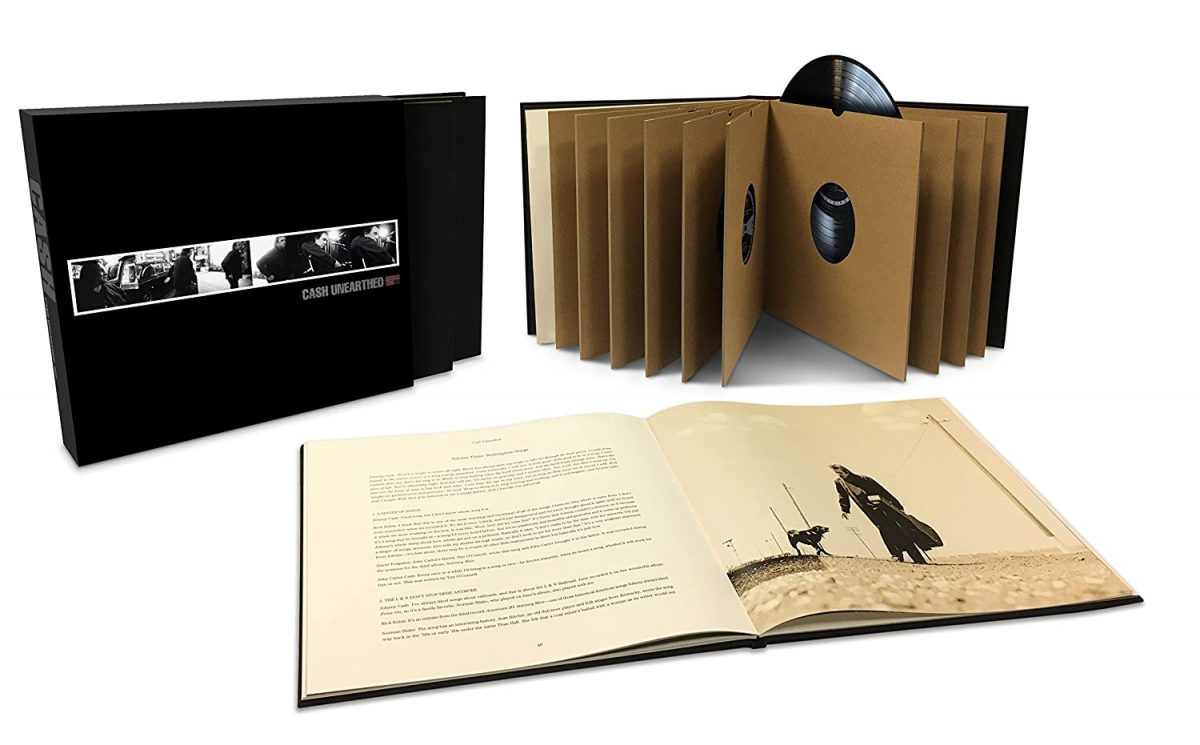
At what point does a piece of recorded music—in whatever brown paper or pixel-fabricated package it’s delivered in—pass beyond “product” into the realm of “art object”? Johnny Cash spent the last decade of his half-century career recording a series of sepia-toned albums with producer Rick Rubin, records that recontextualized Cash’s gritty Americana for a new generation that immediately gravitated to his realer-than-real readings of songs such as Nine Inch Nails’ “Hurt” and Soundgarden’s “Rusty Cage” in addition to gospel standards and tunes about drifters, down-and-outs and dudes dogged by the devil.
Two months after his death in 2003, Unearthed was unleashed and quite rightly went gold, its expansive collection of latter-day recordings striking a chord with longtime acolytes and new fans alike. Almost 15 years later, this same set is reimagined as something of a gallery piece, a ready-for-framing picture of a lion in winter whose magical powers of interpretation and blue-collar poetry remain undiminished with the passage of time. Accompanying this stunning, 79-track body of work on 180-gram vinyl is a pair of cloth-bound booklets, including a 60-page coffee-table tome with liner notes penned by Sylvie Simmons and song-by-song commentary from both Cash and Rubin, festooned with sublime photos of Cash and his various contributors.
There are no jaw-dropping revelations here compared to when this set first visited itself upon us, but the Library of Congress treatment suits an artist whose humble view of his own work is completely contradicted by the enormity of its impact, as collaborations with Tom Petty, Joe Strummer, Willie Nelson, Glen Campbell and Carl Perkins make obvious. When he tells himself “Get off the stage, Cash!” during an outtake midway through the first record, it’s hard to know if he’s giving himself a hard time for continuing to whittle away at his studio craft or permission to finally take leave of this earth. You suspect it’s a bit of both.
—Corey duBrowa







